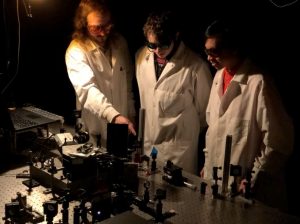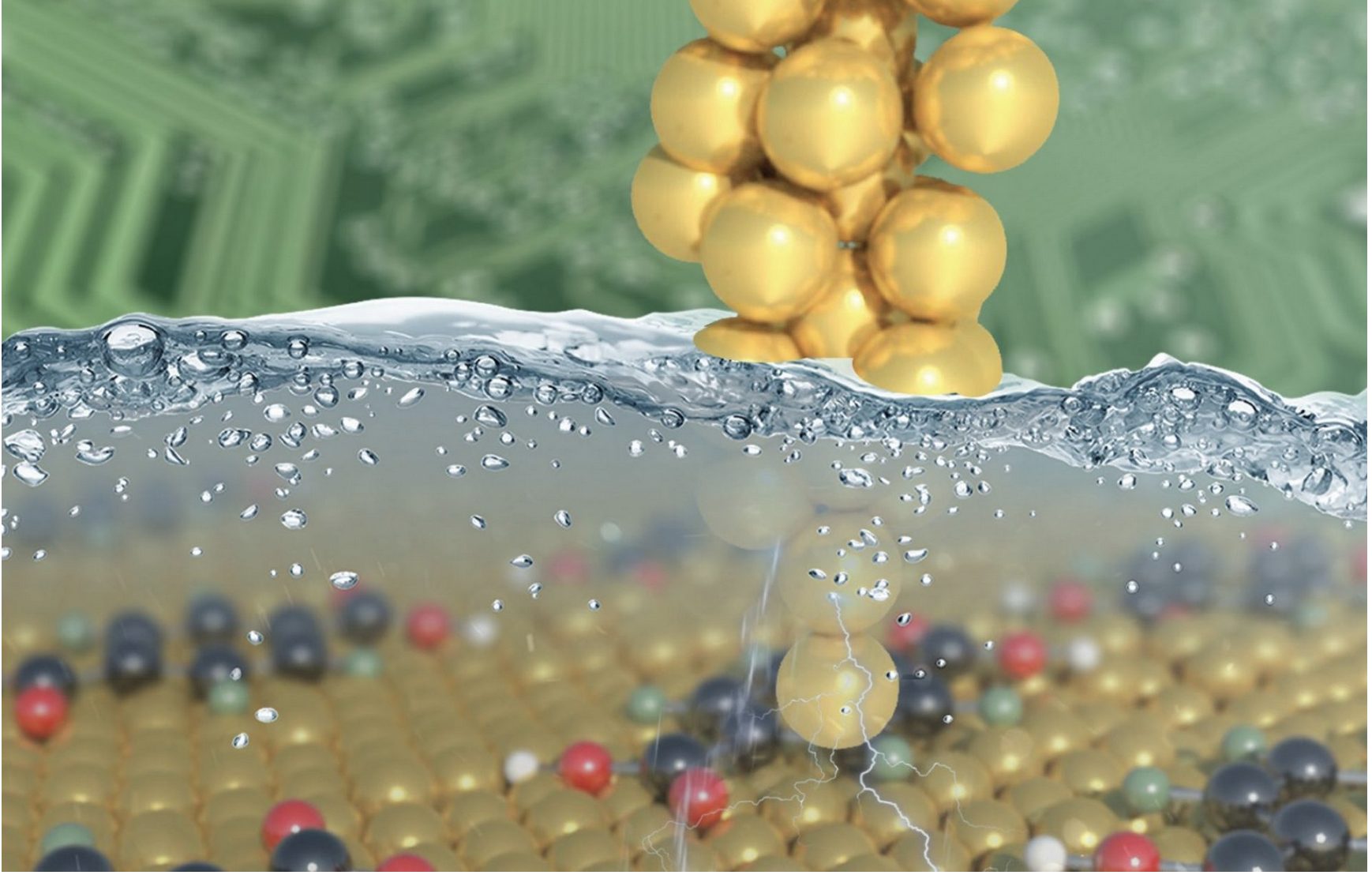 We’re interested in how the world works on a molecular scale, and believe that some of the most interesting and challenging phenomena occur on surfaces.
We’re interested in how the world works on a molecular scale, and believe that some of the most interesting and challenging phenomena occur on surfaces.
It is the ambition of this group to understand chemical reactions, one molecule at a time, with spatial and temporal resolution sufficient to resolve the making and breaking of individual bonds. We look forward to the day when we will be able to visualize how energy, localized in one part of a single molecule, redistributes itself to other parts of the molecule and to its surroundings. We have a dream that we will build supra-molecular structures by simply mixing the precursors together and allowing them to self-assemble in a predetermined manner. The realization of these dreams requires that we understand interfacial and nanoscale phenomena at a fundamental level. This journey will change the way that we think about chemistry.
The objective of this research program is to advance our understanding of interfacial science and to develop technical abilities so that we can address the challenges posed by these dreams.

Our group focuses on the how (and why) of:
- Transport of electrical current in single molecules
- Switching, sensing, and redox chemistry at the single molecule level
- Surface chemistry of nanomaterials
- Plasmonic catalysis and sensing
- Carrier dynamics in two dimensional materials
- Ultrafast vibrational energy flow at aqueous interfaces
- Acid base chemistry aqueous/mineral interfaces
Reading our papers shows (hopefully) that our work has ramifications for, among other things, the construction of electronic devices, building better chemical sensors and understanding molecular processes in the environment.
This group is largely problem based: we want to bring answers to important and interesting questions. What may not be apparent is that most of our research was initiated by students: we go where smart, motivated students take us. If you’re self motivated and want to extend some of our previous work that’s great, but if you have an entirely different avenue of research in mind, that’s OK too.
To start a conversation about how you can better understand the world in the Borguet group send us an email.
